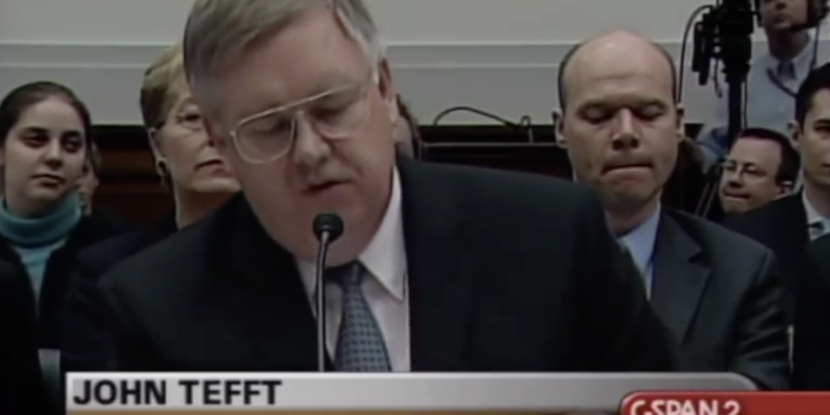A Clinton, Bush, and Obama-era Ambassador rejected the results of 2004’s Ukrainian Presidential election over the same plethora of fraud witnessed in the U.S. elections of 2020. Ambassador John Tefft even went so far as to admit such fraud is “extremely difficult to detect” when the political party organizing the frauds controls the local party apparatus.
Ambassador John Tefft, then-Deputy Assistant Secretary for European and Eurasian Affairs, said on December 7, 2004:
The OSCE/ODIHR’s report said that the election did not meet “a considerable number” of international standards, and that, as in the first round, state executive authorities and the Central Election Commission displayed a lack of will to conduct a genuinely democratic election process. ODIHR assessed the second round “less favorably” than the tainted October 31 first round vote. A U.S.-funded foreign NGO observer mission also described “a coordinated, systematic pattern of major violations leading to an outcome that does not reflect the will of the Ukrainian people.”
He said: “The following are examples of the most egregious, widely observed and reported examples of election-day fraud on November 21,” and listed the following:
- Illegal Use of Absentee Ballots: According to the respected NGO “Committee of Voters of Ukraine” (CVU), massive electoral fraud was committed through the illegal use of absentee voter certificates. For example, people were caught in Dnipropetrovsk and Sumy oblasts with their pockets stuffed with blank absentee ballots that they were using to vote at multiple polling stations.
- Opposition Observers Ejected: Observers from Our Ukraine and other opposition groups were expelled from most polling stations in eastern Ukraine on Election Day. For example, in Territorial Election Commission (TEC) district number 42 in Donetsk oblast, Our Ukraine observers were kicked out of all but a few polling stations.
- North Korean-Style Turnout in the East: Turnout in the pro-Yanukovych eastern oblasts was unnaturally high. In several electoral districts, turnout for the run-off round increased by 30 to 40 percent over the first round. In Luhansk oblast, the reported turnout rate hit nearly 96 percent — a number that, to quote the OSCE, even Stalinist North Korea would envy. A similar turnout rate was reported in Donetsk oblast, where 98 percent of the votes went to hometown candidate Prime Minister Yanukovych.
- Mobile Ballot Box Fraud: In the second round of the election, the number of voters who supposedly cast ballots at home using mobile ballot boxes was double that of the first round. Much of this voting occurred without observers being present and was massively fraudulent. In Mykolayiv oblast, for example, nearly 35 percent of the oblast’s voters purportedly cast their ballots “at home.”
- Computer Data Allegedly Altered To Favor Yanukovych: There were credible reports showing that that Yanukovych supporters gained illegal access to the Central Election Commission’s computer system and illegally altered vote tabulation data being transmitted by TECs to the CEC.
- Reports of Opposition Fraud: Yanykovych’s supporters allege that Yushchenko’s supporters stuffed ballot boxes in western Ukraine. But the reports and evidence of pro-Yanukovych fraud greatly outweighed those indicated for Yushchenko.
In the testimony to the House International Relations Committee, Tefft said:
This massive ballot-box stuffing, fake turnout figures, and other forms of fraud and abuse allowed the authorities to create a victory for their candidate that almost certainly would not have been possible in a free and fair election.
In terms of “lessons learned,” Tefft said: “It is a sad, but true fact that it is extremely difficult to detect and deter fraud and abuse by a candidate and his supporters who have at their disposal all the resources of the state, including local authorities.”
He added: “Also of importance is the need to strengthen legal controls over, and verification of, voter registration lists to ensure that opposition supporters are not excluded while names of deceased and other bogus voters are not added.”


